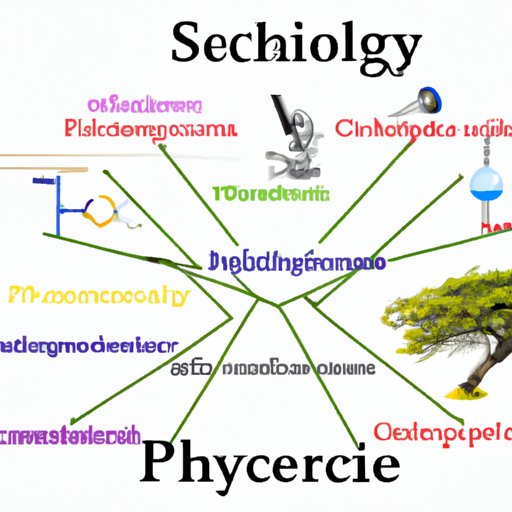Introduction
Physical science is a broad term that encompasses a range of scientific disciplines, including astronomy, chemistry, geology, physics, and meteorology. Physical science applies the principles of physics and chemistry to study the natural world, from the smallest particles to the largest galaxies.
Definition of Physical Science
Physical science is defined as the scientific study of matter and energy and their interactions within the universe. It includes the branches of astronomy, chemistry, geology, physics, and meteorology. Physical science studies the properties and behavior of matter, energy, and the forces that affect them. It also investigates how these forces interact with each other, and how they create and shape our universe.

Overview of the Different Branches of Physical Science
The five main branches of physical science are astronomy, chemistry, geology, physics, and meteorology. Astronomy is the study of the universe beyond the Earth’s atmosphere, including stars, planets, galaxies, and other celestial bodies. Chemistry is the study of the structure, composition, and properties of matter, as well as the changes it undergoes during chemical reactions. Geology is the study of the Earth’s physical structure and its history through the examination of rocks and minerals. Physics is the study of matter, energy, and forces, and how they interact. Meteorology is the study of the atmosphere and weather patterns.
Exploring the Basics of Physical Science
Physical science is a vast field of study with many applications in everyday life. It can be used to develop new technologies, understand climate change, and even explore outer space. By studying physical science, we can better understand the natural world around us and make informed decisions about our environment.
How Does Physical Science Impact Our Lives?
Physical science has a profound impact on our lives. It provides us with an understanding of the universe and the laws that govern it, which can help us make more informed decisions about our environment. It also allows us to develop new technologies that can improve our quality of life, such as medical imaging and renewable energy sources. In addition, physical science can help us explore outer space, gaining a greater understanding of the universe and its potential for discovery.

Investigating the Role of Physics in Physical Science
Physics plays an important role in physical science. It is the study of matter, energy, and forces, and how they interact. Physics helps us understand the behavior of matter, energy, and forces, and how they interact with each other. This knowledge can be used to develop new technologies, such as solar cells and medical imaging devices, and to explore the universe beyond Earth’s atmosphere.
Examining the Intersection of Chemistry and Physical Science
Chemistry is another important branch of physical science. It is the study of the structure, composition, and properties of matter, as well as the changes it undergoes during chemical reactions. Chemistry is closely related to physics, as it involves understanding the behavior of atoms and molecules, and how they interact with each other. Chemistry also plays an important role in physical science research and experiments, as it helps scientists understand how different substances interact with each other and how they can be used to create new materials or products.

The Principles Behind Physical Science Research and Experiments
Physical science research and experiments are based on the principles of physics and chemistry. Scientists use these principles to answer questions about the natural world, such as how the earth’s climate is changing or how new technologies can be developed. The results of these experiments help us understand the world around us and make better decisions about our environment.
Understanding the Interplay of Chemistry and Physical Science
Chemistry and physics are closely intertwined in physical science. Chemistry is used to understand the behavior of atoms and molecules, while physics is used to understand the behavior of matter, energy, and forces. Together, these two branches of physical science provide us with an understanding of the universe and how it works. For example, by understanding the principles of physics and chemistry, scientists can develop new technologies, such as renewable energy sources, or explore outer space.
Conclusion
Physical science is a broad field of study that encompasses a range of branches, including astronomy, chemistry, geology, physics, and meteorology. It applies the principles of physics and chemistry to study the natural world, from the smallest particles to the largest galaxies. Physical science has a profound impact on our lives, as it helps us make more informed decisions about our environment and develop new technologies. In addition, it helps us explore the universe and gain a greater understanding of the laws that govern it.
Summary
In conclusion, physical science is a broad term that encompasses a range of scientific disciplines. It applies the principles of physics and chemistry to study the natural world, from the smallest particles to the largest galaxies. Physics and chemistry play an important role in physical science research and experiments, helping us understand the behavior of matter, energy, and forces and how they interact with each other. Physical science has a profound impact on our lives, providing us with an understanding of the universe and the laws that govern it.
(Note: Is this article not meeting your expectations? Do you have knowledge or insights to share? Unlock new opportunities and expand your reach by joining our authors team. Click Registration to join us and share your expertise with our readers.)
